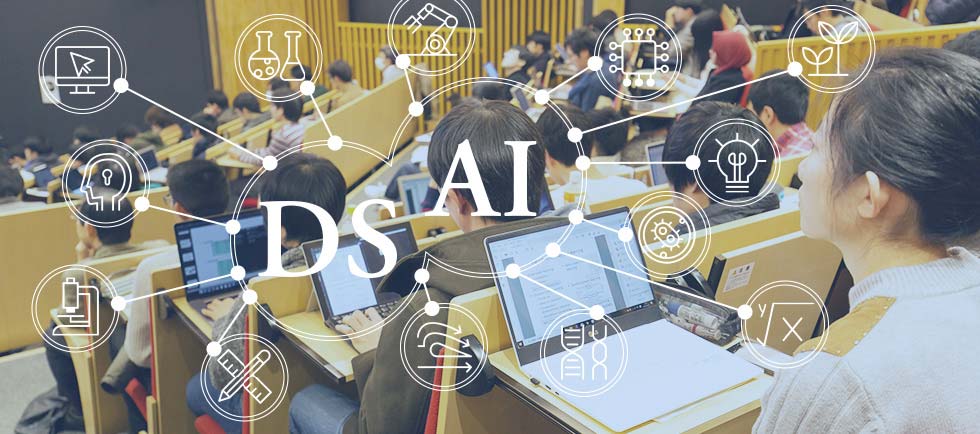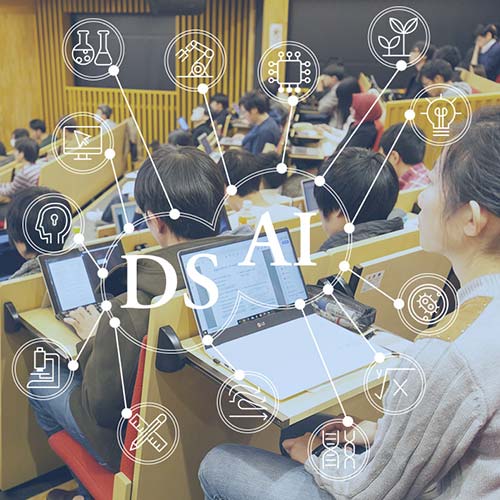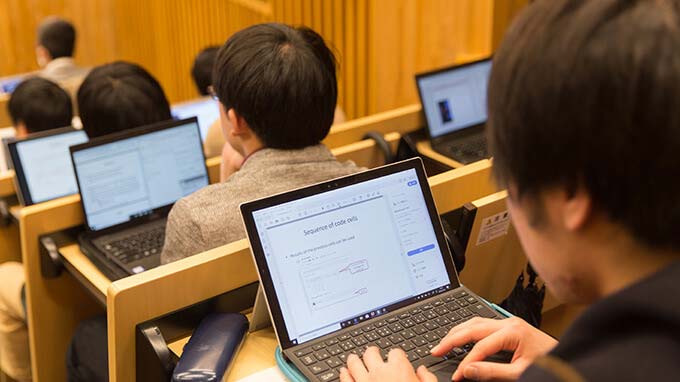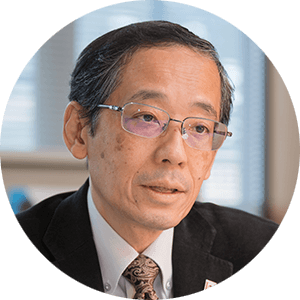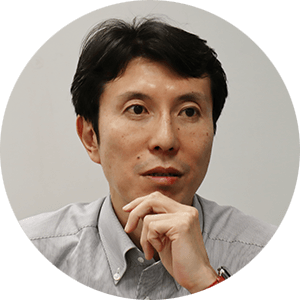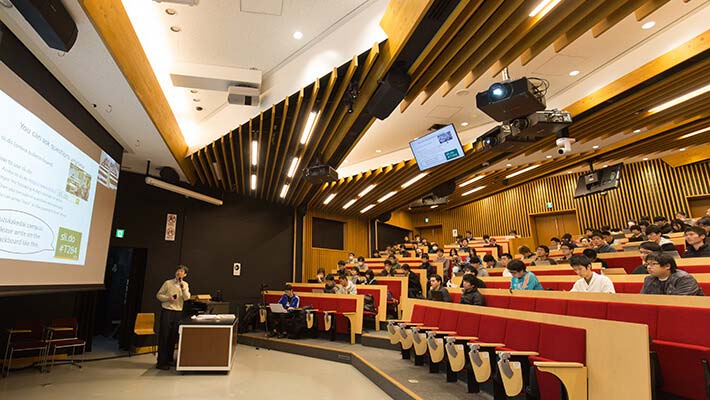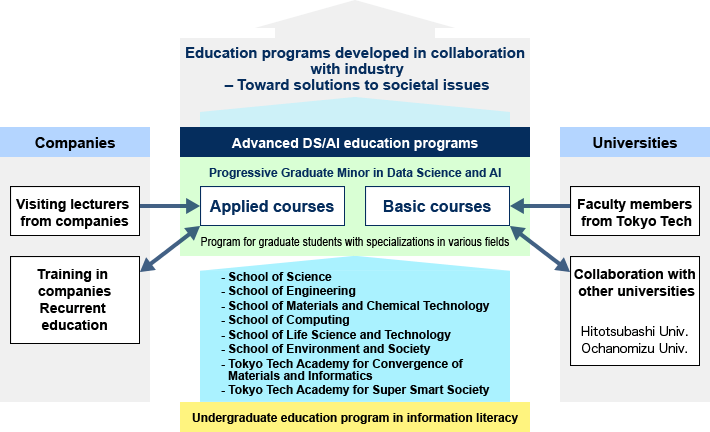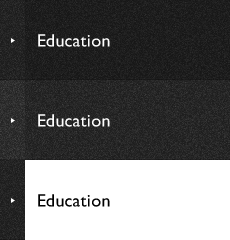December 5 marked the start of a pilot course for Tokyo Tech's new graduate education program, the Progressive Graduate Minor in Data Science/Artificial Intelligence (DS/AI). The program will be officially offered from April 2020. Aimed at graduate students from across the Institute, the new curriculum will provide comprehensive knowledge and hands-on training in data science and AI utilization, enabling students to apply advanced data science (DS) and AI expertise to activities in their respective fields of specialization.
Features of Tokyo Tech's DS/AI program
Open to graduate students from all fields
With the rapid development of DS and AI technologies, personnel with expertise in data science and AI tools are widely sought in almost all industries and research fields. However, the number of professionals with advanced skills in these areas is quite small, and the development of related human resources has become an urgent priority in Japan.
To address these needs, Tokyo Tech is launching a new Progressive Graduate Minor in DS/AI. Open to all graduate students, the program will provide participants with advanced skills in data science and AI that they can then apply to modeling, problem solving, and development of new technologies in their respective disciplines. Undergraduates in their fourth year of study may also be able to take courses offered through the program with the permission of their academic supervisor.
Tokyo Tech already provides the basics of information literacy to its bachelor-level students, and the new DS/AI program will be the first of its kind among Japanese universities. According to Yoshihiro Miyake, Associate Dean for Education at the School of Computing, and supervisor of the Progressive Graduate Minor in DS/AI, "Tokyo Tech's DS/AI program is uniquely positioned to meet the needs of graduate students from across the Institute. It offers the opportunity for all graduate students to augment their specialized fields with in-depth studies in data science and AI. We will foster talented individuals who can apply this combined expertise to solving societal issues and creating new industries."
to its bachelor-level students, and the new DS/AI program will be the first of its kind among Japanese universities. According to Yoshihiro Miyake, Associate Dean for Education at the School of Computing, and supervisor of the Progressive Graduate Minor in DS/AI, "Tokyo Tech's DS/AI program is uniquely positioned to meet the needs of graduate students from across the Institute. It offers the opportunity for all graduate students to augment their specialized fields with in-depth studies in data science and AI. We will foster talented individuals who can apply this combined expertise to solving societal issues and creating new industries."
Pairing theory with application
The program comprises foundational courses focused on the theory of data science and AI and courses on the practical applications of each. Upon completion of the program, students will receive a certificate from the Institute president.
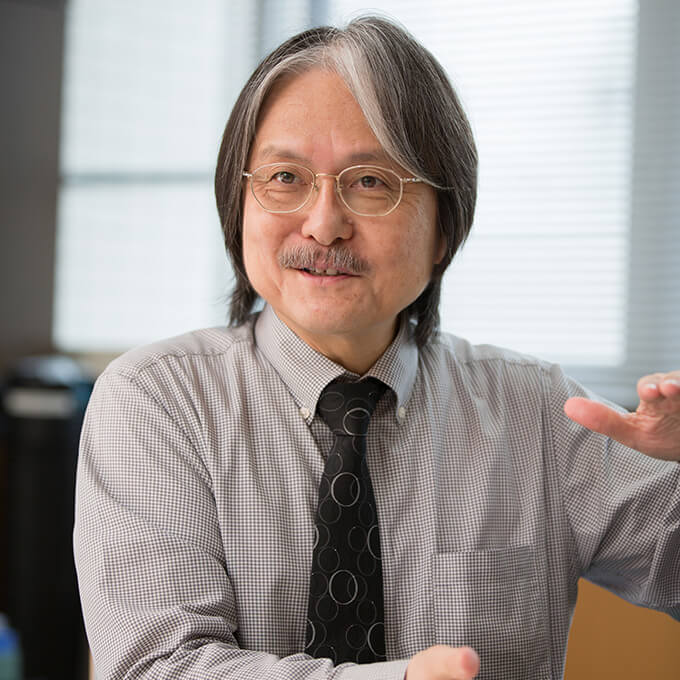
DS/AI Program Supervisor Professor Yoshihiro Miyake
To ensure students' understanding of the theoretical bases and contexts of data science and AI, the curriculum includes foundational courses such as "Fundamentals of Data Science," "Exercises in Fundamentals of Data Science," "Fundamentals of Artificial Intelligence," and "Exercises in Fundamentals of Artificial Intelligence." This series pairs basic learning in each "fundamental" course with practical applications in a related "exercise" course. As each course pair holds its classes consecutively, students may immediately apply theoretical knowledge to in-class exercises on the same day.
"Learning only the theory of data science or AI is insufficient. This program emphasizes hands-on practice to foster practical skills development," explains Miyake.
The foundational courses will initially be taught by School of Computing faculty members, though faculty members of the other Schools will also be involved in developing the curriculum. Until now, faculty members in Tokyo Tech's various Schools have been introducing students to existing data science and AI tools that are specifically relevant to their own fields, but this is the first time Tokyo Tech has established an Institute-wide curriculum specifically focused on the two subjects. The curriculum for the new program makes possible not only the sharing of advanced expertise among students enrolled in the courses but also the sharing of teaching resources, which will accelerate interdisciplinary collaboration and integration. In addition, as faculty members from disciplines outside the School of Computing participate in curriculum development and course instruction for the DS/AI program, the Institute's own teaching resources in these areas will be enhanced.
The program is in line with a human resources development initiative of the Japanese government for the so-called "AI era." The latest national strategy for AI was announced in June 2019 at the meeting of the Council for Science, Technology and Innovation, chaired by Prime Minister Shinzo Abe. Among its goals: producing by 2025, on an annual basis, around one million high school graduates and 500,000 university and vocational school graduates who possess mastery of basic AI knowledge and skills.
Applied courses taught by researchers from global companies
In addition to the foundational courses, the DS/AI program will also feature applied courses taught by experts from leading global companies such as Yahoo! JAPAN.
According to Miyake, "Lecturers with backgrounds in IT, finance, and manufacturing will walk students through case studies of how data science and AI are specifically applied to solve problems in various situations across different industries. Infusing their specialist knowledge with advanced understanding of data science and AI, our students will contribute to the creation of not only new technology but also new value and, we expect, effectively address social challenges. "
As students may capitalize on Tokyo Tech's cutting-edge research and recognized expertise in computing and other fields, the DS/AI program offers yet another attractive curricular option for aspiring global leaders.
*Related pilot courses in AY 2019
Students connect DS/AI learning to their fields of specialization
Students in the data science pilot course were surveyed on how they might apply their learning in DS/AI to their respective fields. Some said DS/AI applications could facilitate the processing of large amounts of data, while others suggested that the acquisition of practical skills in those fields would lead to even better job opportunities. Even those who entered the course with "minimal" related knowledge or skills indicated high expectations regarding possible DS/AI applications in their fields. Here are some examples:
- I am interested in topographic mapping of Mars using machine learning. As there are no clear standards for interpreting the vast variations in Mars' terrain and human observation has limits, AI offers great potential.
- Using computational chemistry to create a molecular database that can help predict the nature and properties of new molecules
- Applications include the identification of voices, musical instruments, and rhythms, etc. based on the features of sounds, as well as the creation of an automated transcription system for music and automated generation of music.
- I am interested in applications in research or practice to predict time series data in the foreign exchange market based on chart patterns of public psychology. Machine learning can be applied to adjust the parameters of models prepared by humans and automatically recognize patterns during real trading.
- Finding new discussion topics based on functional magnetic resonance imaging (fMRI) data (fMRI maps blood flow in the brain to measure brain function.)
- Introducing DS/AI in the civil engineering field to establish more efficient production practices
Nurturing top leaders who can address social challenges
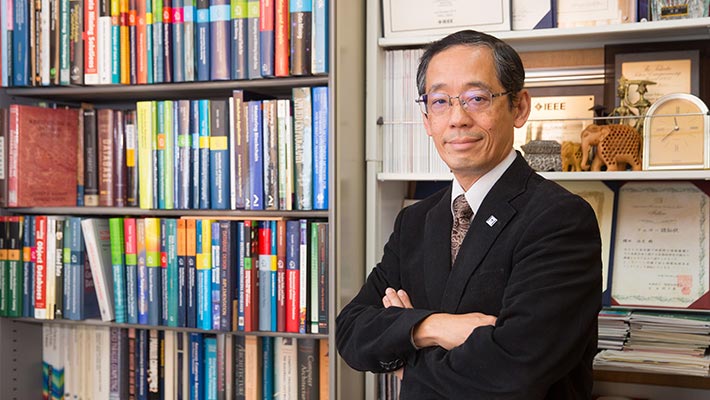
School of Computing Dean Haruo Yokota
— Please describe the purpose of the new Progressive Graduate Minor in Data Science and AI.
Yokota:Undergraduate-level courses where students can learn how to use existing AI tools are not uncommon at Japanese universities. As one of the world's leading universities in science and technology, however, Tokyo Tech's mission is to produce top-level specialists in all fields of science and engineering. By focusing specifically on graduate students, our program provides the opportunity for those who already possess expertise in a particular discipline to acquire theoretical knowledge and practical skills in data science and AI and then apply these skills in their own field.
— Can you describe the talent you aim to nurture through this program?
Yokota:Students who participate in this program possess expert knowledge and experience in their fields, as well as the ability to identify problems. This program will augment their expertise by facilitating mastery of core skills and knowledge in the areas of data science and AI. I expect the program will develop individuals who will be among the few in their specialized fields who can apply this expertise.
— How many students do you hope will take advantage of the program?
Yokota:I read that at Massachusetts Institute of Technology (MIT), 40% of the 2017 graduating class had either majored or double-majored in Electrical Engineering and Computer Science — that's 40% of students majoring in an IT-related field. Considering the urgent need for IT-related expertise across most fields, our goal for the Data Science and AI program is to enroll 40 percent of all graduate students on an annual basis.
— What are your plans regarding recurrent education and collaboration with other universities, such as Hitotsubashi University and Ochanomizu University?
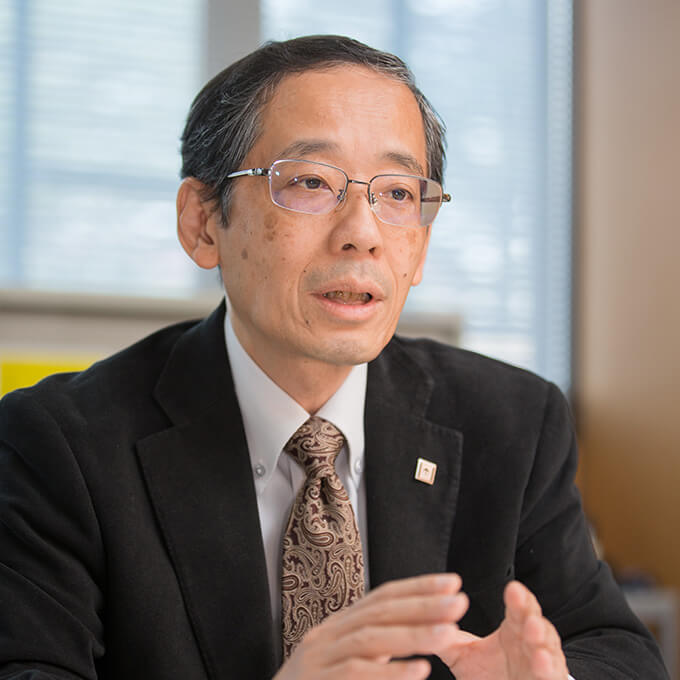
Yokota:As data science and AI are becoming indispensable across all types of industry, many companies are looking for ways to provide this sort of training to their employees. We plan to organize courses based on the DS/AI curriculum to deliver recurrent education to corporate employees and to the general public. Especially since working adults already have their own specialties, but require basic knowledge and skills in data science and AI, our program's concept is highly relevant to their needs.
Separately, using our data science and AI curriculum as a base, we will work with other universities, including Hitotsubashi University and Ochanomizu University, to help meet the needs of other student populations.
The pilot courses in the 2019 academic year are rather small scale. But we anticipate ongoing collaboration among faculty members at the School of Computing and Tokyo Tech's other Schools -- as well as valuable collaborations with industries — will enable us to scale up our offerings through the 2020 academic year to address the diverse needs of individual fields and meet the demands of the times.
Lectures draw on the real-world experiences of industry leaders
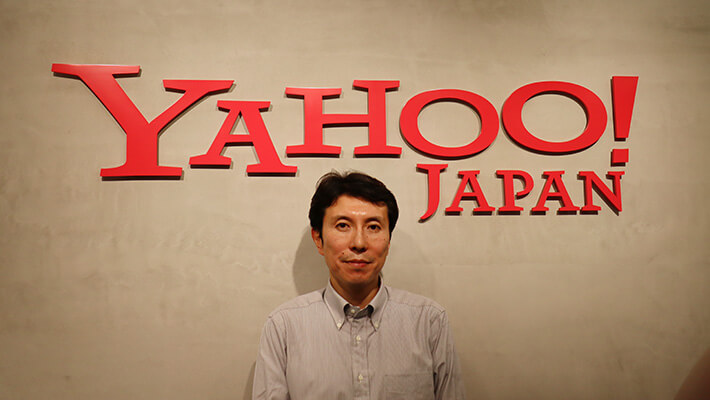
Akira Tajima, Ph.D., Head of Yahoo! JAPAN Research, and Head of Technology Incubation, Yahoo Japan Corporation
Exponential growth in demand for data science and AI personnel
The IT industry, including companies such as ours, has until recently been the main player in R&D and utilization of data science and AI, but professionals with this specific expertise are increasingly sought in all range of fields and industries. Through our collaboration with Tokyo Tech, we at Yahoo! JAPAN are striving to make professions in these fields more attractive to young people.
Regrettably, at DS/AI-related international conferences, the number of participants from Japan is quite small compared with the numbers from the US and, more recently, from China. Considering the size of Japan's population and the relatively small number of female students in sci-tech fields, the country's entire IT population is almost 20 times smaller than that of China. To overcome the talent shortage in Japan, we must increase the numbers of talented persons with this expertise by encouraging as many excellent students as possible to join these fields. In that sense, my expectations for Tokyo Tech's program in data science and artificial intelligence are very high.
Learning from Yahoo! JAPAN's experience
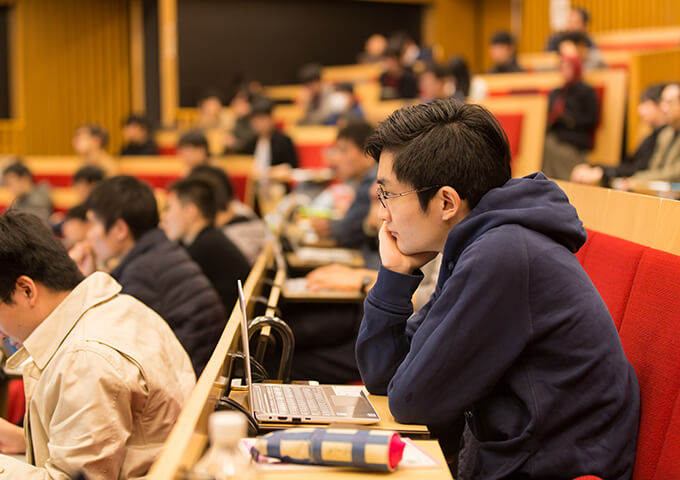
Since October 2019, Yahoo! JAPAN is collaborating with Tokyo Tech's School of Computing to provide the Advanced Artificial Intelligence and Data Science course. My colleagues and I actually teach the 8-week course at Tokyo Tech. Aiming to build students' understanding of front-line web media systems, the course focuses on the infrastructure of artificial intelligence and data utilization, information retrieval, and machine learning. We cover a wide range of fundamental technologies for AI and data science, including platform data processing, natural language processing such as speech recognition, authentication technologies for the Internet, and database-related technology. And, we introduce real-life examples of AI and data science applications in advertising and media distribution, such as the news recommendation function. As a platform handling tens of millions of users daily and a website that also daily accommodates several billion accesses, Yahoo! JAPAN is uniquely positioned to introduce this kind of real-world technology.
My colleagues and I actually teach the 8-week course at Tokyo Tech. Aiming to build students' understanding of front-line web media systems, the course focuses on the infrastructure of artificial intelligence and data utilization, information retrieval, and machine learning. We cover a wide range of fundamental technologies for AI and data science, including platform data processing, natural language processing such as speech recognition, authentication technologies for the Internet, and database-related technology. And, we introduce real-life examples of AI and data science applications in advertising and media distribution, such as the news recommendation function. As a platform handling tens of millions of users daily and a website that also daily accommodates several billion accesses, Yahoo! JAPAN is uniquely positioned to introduce this kind of real-world technology.
Tokyo Tech's program in data science and AI is offered to graduate students in specialized fields, which may not necessarily be IT-related. As an IT company, of course, the examples Yahoo! JAPAN can discuss in the lectures are naturally limited to those from our industry. But, technologies related to data science and AI are applicable in diverse fields. For instance, our advertising, search, and recommendation technologies could be used by those in the fields of materials science or life sciences in order to narrow down an enormous number of possibilities and identify optimum selections. We hope the course will enable students to deepen their thinking as they consider how they can apply these various technologies in their own fields of expertise.
Expertise in one's own field and in DS/AI
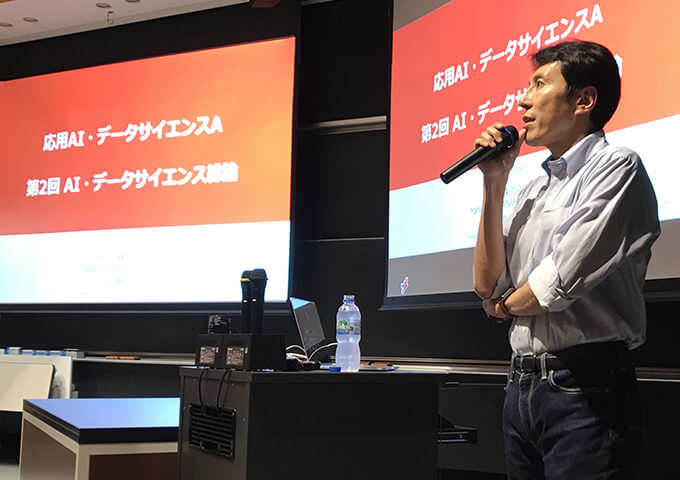
It's becoming more important than ever to develop expertise in data science and AI as well as in one's own field. Data scientists are often described as professionals in not one, but three fields: science, engineering, and business. This mastery of multiple areas can greatly facilitate collaborations, including joint R&D, with partners in other spheres.
Our lectures aim to provide foundational knowledge upon which students will independently build upon their learning through ongoing, hands-on practice. Therefore, I hope those enrolled in the course will continue to apply these concepts and technologies long after the course concludes. I also hope the course will serve as a powerful source of motivation.
Importance of mathematics and English language skills
I would also stress the importance of mathematics and English language skills. A strong understanding of mathematics is essential for dealing with data, and almost all leading-edge research is shared in English. I want to encourage students to develop and maintain their skills in those areas, along with learning data science and AI.
Lastly, let me add that our participation in Tokyo Tech's program is very meaningful for us, as it allows our company to contribute to the development of future DS/AI leaders.
The Special Topics component of the Tokyo Tech Website shines a spotlight on recent developments in research and education, achievements of its community members, and special events and news from the Institute.
Past features can be viewed in the Special Topics Gallery.
. Any information published on this site will be valid in relation to Science Tokyo.


